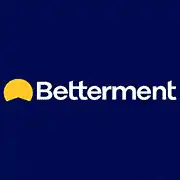Betterment delivers one of the narrowest, most stripped-down investing experiences on offer today—and in a world where seemingly limitless investing options cause analysis paralysis, that’s not necessarily a bad thing.
Betterment is a robo-advisory platform with roughly 900,000 clients and more than $50 billion in assets under management. Its helps users manage their money through guided investment accounts, cash management, and retirement planning.
This robo-advisor doesn’t allow for self-directed investing—instead, it takes the guesswork out of investing by allowing its users to choose from a handful of pre-built portfolios with different themes and goals. It’s also different from traditional brokers in that it’s a subscription-based product.
In this Betterment review, I’ll discuss the platform’s investing product, the other different types of accounts it offers, how Betterment could improve, and who is the best fit for a Betterment account.
What Types of Accounts Does Betterment Offer?

Betterment offers four types of accounts:
- Investing
- Cryptocurrency
- Cash Reserve
- Checking
People who choose to open multiple types of Betterment accounts, or even want to connect outside accounts to Betterment, can track all of them within the dashboard.
Investing
- Cost: $4/mo. or 0.25% annually.
- Premium: 0.65% annually
- Minimum balance: $0
- Minimum deposit: $10
Betterment Investing is the company’s prime product—an investing service paired with one of several types of accounts: a taxable brokerage account, a traditional individual retirement account (IRA), a Roth IRA, or a SEP IRA.
Users start by answering questions about their risk tolerance and financial goals. Based on those answers, Betterment recommends a few pre-built, diversified, investment portfolios powered by low-cost exchange-traded funds (ETFs)—examples include the Core portfolio of stocks and bonds, the Value Tilt collection of undervalued U.S. stocks and bonds, and the 100%-bond only BlackRock Target Income portfolio.
You choose the portfolio you think is the best fit for your time horizon, risk tolerance, and goals, and Betterment takes care of the rest. That includes automated trading, rebalancing, dividend reinvestment, and tax-loss harvesting (more on this later).
Betterment charges $4 per month to start; however, if you set up recurring monthly deposits totaling $250, or reach a balance of at least $20,000 across all Betterment accounts, the fee changes to 0.25% of all assets under management.
However, if you’d prefer access to human advisors, you can upgrade to Betterment Premium. Premium users receive unlimited access to Certified Financial Planners™. Premium costs 0.65% annually, and upgrading requires a $100,000 minimum balance across your Betterment cash, stocks, bonds, or crypto holdings.
Brokerage services are provided by Betterment Securities, an SEC-registered broker-dealer. And because Betterment is a fiduciary, the platform legally must put your interests first.
Related: 12 Best Long-Term Stocks to Buy and Hold Forever
Crypto
- Cost: 1% annual fee + trading expenses (up to 0.15% per trade)
- Minimum balance: $0
- Minimum deposit: $10
Betterment Crypto’s diversified, pre-built portfolios include several popular cryptocurrencies. You can currently choose among three portfolios: Universe (11 cryptos), Sustainable (a handful of digital coins that are working toward reducing energy consumption and lowering carbon emissions), and the Bitcoin/Ethereum portfolio, which currently is a roughly 70/30 mix of the two large cryptocurrencies.
Importantly, this is a separate account from the Investing account. However, like with Investing, Crypto portfolios automatically rebalance.
Related: 11 Best Alternative Investments [Options to Consider]
Cash Reserve
- Cost: No monthly fees
- Minimum balance: $0
- Minimum deposit: $10
Betterment Cash Reserve is a high-yield cash account. It currently offers 5.00%, though, like all high-yield savings accounts, this rate is variable (and thus can and likely will change).
New customers who sign up through this link can get an extra 0.50% APY (for a total 5.50% APY) for the first three months with a qualifying deposit. Importantly: Even if the base variable APY were to change, the boost would be added to the updated rate.
The Betterment Cash Reserve account offers unlimited withdrawals and transfers. That said, you should mind the name “cash reserve”—as in, the cash in this account is expected to, at some point, go toward paying for securities in your Investing account. While you technically can treat it like a savings account, it’s not ideal.
Also noteworthy is Betterment’s FDIC insurance on Cash Reserve accounts. You get up to $2 million in protection (and up to $4 million for joint accounts). That’s eight times the standard amount.
Related: The 7 Best Closed-End Funds (CEFs)
Checking
- Cost: No monthly fees
- Minimum balance: $0
- Minimum deposit: $10
The Betterment Checking account offers decent features and an extremely friendly set of fee policies.
While accounts come with paper checks and a tap-to-pay Betterment Visa debit card, you can also use the card digitally via Apple Pay and Google Pay. Perks include cash-back rewards with select brands including Adidas, Costco, and TOMS.
Accounts are not only free of both monthly and overdraft fees, but ATM and Visa’s 1% transaction fees are automatically reimbursed. They’re also FDIC-insured up to $250,000 per depositor. And your car is covered by Visa’s Zero Liability Policy, which protects you from 100% of unauthorized charges made with your card or card details (as long as you notify your financial institution immediately upon noticing fraudulent charges).
The one downside worth noting here is there are no brick-and-mortar Betterment locations. So if an in-person experience is important to you, you might need to look elsewhere.
Related: 12 Best Investment Opportunities for Accredited Investors
What We Like About Betterment

Among the pros of Betterment’s offerings:
- An uber-simple investing product. If you want to choose your own individual stocks and funds, Betterment simply is not for you. However, if you simply don’t want to (or don’t believe you can) make your own investment decisions, Betterment is an ideal way to build a diversified, low-cost portfolio.
- Simplified cryptocurrency experience.
- Consumer-friendly checking fee policy.
- Competitive cash-back rewards on its checking account.
I also want to take a second to point out one of my favorite parts of Betterment: tax-loss harvesting.
If you invest in a taxable account, and you sell an investment for a gain, you’ll owe taxes on those gains. (What you owe differs depending on whether you’ve held that investment for more than a year.) However, if you sell an investment for a loss, you can use that to offset your capital gains, and thus the taxes you’d pay on them, or if your loss is more than your gains (or you don’t have any gains at all), you can even reduce taxes owed on your personal income, subject to a $3,000 annual cap.
This can be a complicated strategy, but Betterment automates this process for you by checking for tax-loss harvesting opportunities and then reinvesting the proceeds.
Related: 5 Best Money Market Funds [Protect Your Savings]
What Betterment Could Do Better

A few cons of the service?
- No self-directed options. This isn’t even a weakness so much as it is what defines Betterment. If you want simplified investing, Betterment will work for you. But if you want to select your own individual stocks, bonds, funds, and other assets, Betterment won’t work for you at all.
- Limited crypto in crypto portfolios. Even the most diversified crypto portfolio Betterment offers has just 11 cryptocurrencies. It’s better than nothing, of course, but there are more diversified options out there.
It’s also worth noting that Betterment’s subscription fees are neither good nor bad. Yes, the subscription nature of Betterment’s products somewhat counter the low portfolio fees (charged by the ETFs held in portfolios). But Betterment’s 0.25% fee is pretty average among the various other robo-advisory products on offer.
Related: 17 Best Stock News Apps & Sites [Financial & Stock Market Info]
Who Is Betterment Best For?

You’ve probably caught on because I’ve mentioned it several times now, but Betterment is best for people who want to put their money to work—but don’t have the time, ability, or desire to assemble their own portfolios by selecting from thousands of options.
Conversely, if you actually enjoy the thrill of making your own investment choices, look almost anywhere but here.
Betterment is frequently touted as one of the best investment apps for beginners (including by us), and it is—but it’s possible the designation comes as something of a backhanded compliment. Perhaps a better way to describe Betterment is that it’s one of the best investment apps for people who want to invest with as little friction as possible.
- The Betterment app gives you the tools, inspiration, and support you need to become a better investor.
- Start with as little as $10 and use the top-rated mobile app to set up automatic investing into diversified ETF portfolios.
- You can also invest in diversified preset cryptocurrency portfolios.
- Customize your risk tolerance and investment goals with guidance available at any time.
- By upgrading to Premium, you can unlock unlimited financial guidance from a Certified Financial Planner™.
- Hands-off investment management
- Diversified portfolio that automatically rebalances
- Low-cost investment selection
- Limited investment selections
- Limited crypto diversification in cryptocurrency portfolios
Related: The 9 Best ETFs for Beginners







